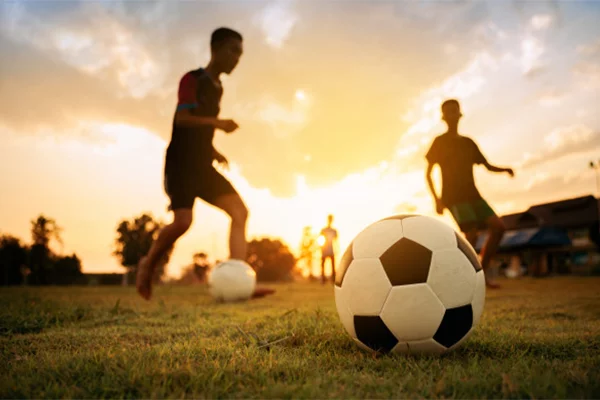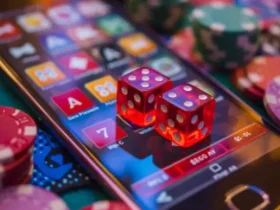“Pass it to the left, eh!” The sound of bouncing basketballs and excited chatter fills the air at a local basketball camp. It’s more than just learning a jump shot; it’s about building connections. As parents, we all want our kids to excel academically, but fostering strong social skills is equally vital for their success and happiness. From navigating the playground to collaborating on group projects, social skills are the bedrock of healthy relationships. This blog explores some of the best extracurricular activities, including basketball camps, that can help your child develop those crucial social abilities.
Team Sports: Playing Together, Growing Together
Team sports like soccer, hockey (of course!), and basketball, especially through structured programs like basketball camps, provide a fantastic avenue for social development. These activities teach kids how to work together, communicate effectively, and handle the ups and downs of competition. Key social skills developed include:
• Communication:
Whether calling for a pass on the basketball court or strategizing a play, kids learn to communicate verbally and non-verbally.
• Cooperation:
Working as a team towards a common goal, like winning a game or completing a basketball camp drill, fosters cooperation.
• Conflict Resolution:
Disagreements are inevitable, but sports teach kids how to compromise and resolve conflicts constructively.
• Empathy:
Understanding and respecting teammates’ feelings, especially during a tough game or basketball camp practice, builds empathy.
• Leadership and Following Instructions:
Kids learn to take on leadership roles and follow the guidance of coaches and instructors.
Choosing the right team sport or basketball camp depends on your child’s interests and personality. Look for programs that emphasize teamwork and sportsmanship.
Performing Arts: Expressing Yourself, Connecting with Others
Performing arts like theatre, music, and dance offer a unique platform for self-expression and collaboration. Imagine your child overcoming stage fright in a school play or harmonizing with their peers in a choir. These activities develop:
• Public Speaking and Presentation Skills:
Whether delivering lines in a play or performing a solo, kids gain confidence in public speaking.
• Creative Collaboration and Improvisation:
Working together to create a performance fosters collaboration and improvisation.
• Building Confidence:
Overcoming stage fright and performing in front of an audience boosts self-confidence.
• Active Listening:
Responding to cues and collaborating with fellow performers requires active listening.
• Emotional Expression:
Acting, singing, and dancing allow kids to explore and express a range of emotions.
Look for local theatres, music schools, and dance studios that offer programs suitable for your child’s age and interests.
Group-Based Creative Activities: Building Together, Learning Together
Activities like art classes, coding clubs, and robotics teams provide opportunities for kids to collaborate on creative projects. These activities help develop:
• Sharing Ideas and Providing Constructive Feedback:
Kids learn to share their ideas and offer helpful feedback to their peers.
• Problem-Solving:
Working together to solve problems in a coding project or art assignment enhances problem-solving skills.
• Negotiation and Compromise:
Collaborating on group projects requires negotiation and compromise.
• Building Friendships:
Connecting with peers who share similar interests fosters friendships.
• Taking Turns and Sharing Resources:
Group activities teach kids to share resources and take turns.
Consider your child’s interests when choosing creative group activities.
Volunteering and Community Service: Giving Back, Connecting with Others
Volunteering provides opportunities for kids to connect with diverse individuals and contribute to their community. Whether it’s helping at a local food bank or participating in a community cleanup, volunteering helps develop:
• Interacting with Diverse Individuals:
Volunteering brings kids into contact with people of different ages and backgrounds.
• Developing Responsibility and Empathy:
Contributing to the community fosters a sense of responsibility and empathy.
• Collaborative Work:
Working on community projects teaches kids how to collaborate effectively.
• Building Connections with Mentors:
Volunteering can provide opportunities to connect with mentors and role models.
• Understanding Diverse Perspectives:
Engaging in community service broadens kids’ perspectives.
Look for age-appropriate volunteer opportunities in your community.
Clubs and Organizations: Shared Interests, Strong Bonds
Clubs like Scouts, debate teams, and book clubs provide opportunities for kids to connect with peers who share their interests. These activities help develop:
• Group Discussion and Debate:
Participating in discussions and debates enhances communication skills.
• Organizing and Planning Events:
Planning club activities teaches kids how to organize and plan events.
• Building a Sense of Belonging:
Joining a club fosters a sense of belonging and community.
• Developing Specific Skills:
Clubs allow kids to develop specific skills alongside their peers.
• Following Group Rules and Norms:
Participating in clubs teaches kids how to follow group rules and norms.
Help your child find clubs that align with their interests and passions.
Conclusion: Nurturing Social Growth for a Bright Future
Extracurricular activities, especially those involving teamwork like basketball camps, play a vital role in fostering social skills. Remember, it’s about more than just mastering a skill; it’s about building connections, developing empathy, and learning to navigate social situations. Encourage your child to explore different activities and find what resonates with them. The goal is to create positive social experiences that build confidence and prepare them for a successful and fulfilling future. And who knows, maybe they’ll make a lifelong friend at that next basketball camp.





